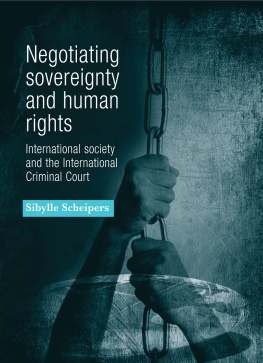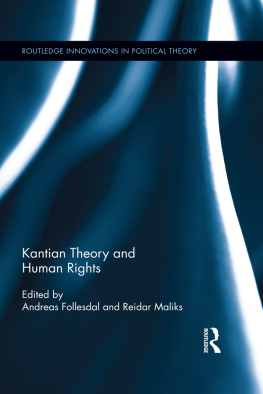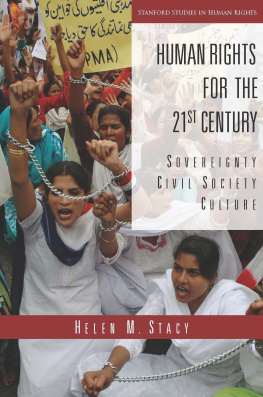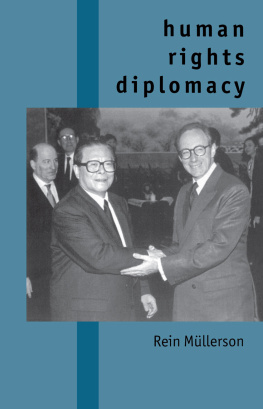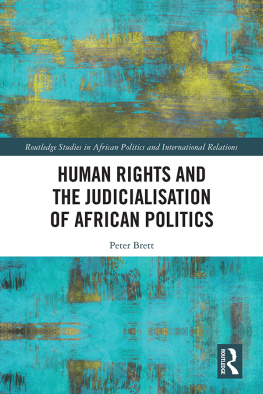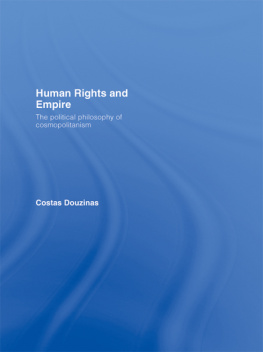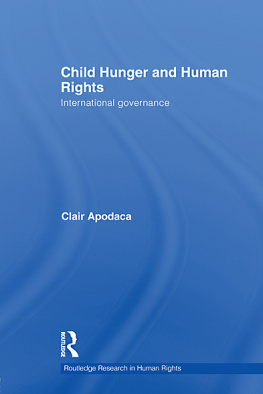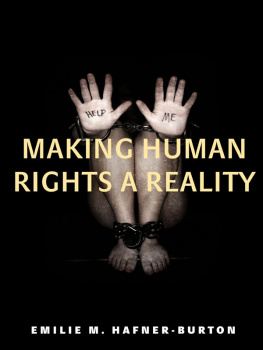THE SOVEREIGNTY OF HUMAN RIGHTS

Oxford University Press is a department of the University of Oxford. It furthers the Universitys objective ofexcellence in research, scholarship, and education by publishing worldwide.
OxfordNew York
AucklandCape TownDar es SalaamHong KongKarachiKuala LumpurMadrid
MelbourneMexico CityNairobiNew DelhiShanghaiTaipeiToronto
With offices in
ArgentinaAustriaBrazilChileCzech RepublicFranceGreeceGuatemalaHungary
ItalyJapanPolandPortugalSingaporeSouth KoreaSwitzerlandThailand
TurkeyUkraineVietnam
Oxford is a registered trademark of Oxford University Press in the UK and certain other countries.
Published in the United States of America by
Oxford University Press
198 Madison Avenue, New York, NY 10016
Oxford University Press 2015
All rights reserved. No part of this publication may be reproduced, stored in a retrieval system, or transmitted, in any form or by any means, without the prior permission in writing of Oxford University Press, or as expressly permitted by law, by license, or under terms agreed with the appropriate reproduction rights organization. Inquiries concerning reproduction outside the scope of the above should be sent to the Rights Department, Oxford University Press, at the address above.
You must not circulate this work in any other form and you must impose this same condition on any acquirer.
Library of Congress Cataloging-in-Publication Data
Macklem, Patrick, author.
The sovereignty of human rights / Patrick Macklem.
pages cm
Includes bibliographical references and index.
ISBN 978-0-19-026731-5 ((hardback) : alk. paper)
eISBN 978-0-19-026733-9
1. Human rights. 2. Civil rights. I. Title.
K3240.M3215 2015
342.08'5dc23
2015006707
Note to Readers
This publication is designed to provide accurate and authoritative information in regard to the subject matter covered. It is based upon sources believed to be accurate and reliable and is intended to be current as of the time it was written. It is sold with the understanding that the publisher is not engaged in rendering legal, accounting, or other professional services. If legal advice or other expert assistance is required, the services of a competent professional person should be sought. Also, to confirm that the information has not been affected or changed by recent developments, traditional legal research techniques should be used, including checking primary sources where appropriate.
(Based on the Declaration of Principles jointly adopted by a Committee of theAmerican Bar Association and a Committee of Publishers and Associations.)
You may order this or any other Oxford University Press publicationby visiting the Oxford University Press website at www.oup.com
For Courtney

Contents

I FIRST CONCEIVED of this book when I was a Fellow at the School of Social Science at the Institute for Advanced Studies in Princeton, New Jersey. Many thanks to Danielle Allen, Joan Scott, and Michael Walzer for their gracious hospitality and our countless conversations that shaped this project at its outset. I also wish to thank my colleagues at the Faculty of Law, University of Toronto, an institution with an unparalleled group of international legal scholars and legal theorists from whom I have learned so much.
Over the years, I have had discussions about the various themes and arguments that comprise this book with many friends and colleagues. Thanks to Roy Adams, Andrew Arato, Jutta Brune, Vincent Chiao, Jean Cohen, Dennis Davis, Ron Daniels, David Dyzenhaus, Karen Engle, Willy Forbath, Evan Fox-Decent, Judy Fudge, Michael Ignatieff, Karen Knop, Brian Langille, Frdric Mgret, Ed Morgan, Guy Mundlak, Anne Norton, Jennifer Orange, Umut zsu, Gaetano Pentassuglia, Kerry Rittich, Michel Rosenfeld, Brad Roth, Andrs Saj, Kim Scheppele, Brian Tamanaha, Balzs Tth, and Renata Uitz, as well as, of course, Michael Trebilcock, for always advising to throw deep. Special thanks go to Patrick Healy, Courtney Jung, Zoran Oklopcic, Arthur Ripstein, David Schneiderman, and the two anonymous reviewers at Oxford University Press, all of whom read the entire manuscript with care and provided me with invaluable comments and advice. I am also grateful to Evan Rosevear and especially Patrick Healy for their research assistance, and Nancy Bueler for her exceptional administrative assistance. I would also like to thank the Social Sciences and Humanities Research Council of Canada, for providing me with valuable research funding.
Parts of the book build on but significantly revise work previously published in the International Journal of Constitutional Law, the London Journal of International Law, the London Review of International Law, the McGill Law Journal, and the Michigan International Law Journal, and I am grateful for their permission to use this material. I would also like to thank Blake Ratcliff and Alden Domizio, both of Oxford University Press, and Cassie Tuttle, Arun Kumar Vasu, and Enid L. Zafran for skillfully shepherding the manuscript to publication.
I could not have completed this project without the enduring love I receive from my family, especially my wonderful children, Riel, Sam, Serena, and Peter. But my greatest debt is to Courtney Jung, my heart and soul mate, for filling my life with love and purpose.
HUMAN RIGHTS ARE the vocabulary of justice for our globalizing world. They frame our moral conceptions of obligations to friends and strangers, they shape our political judgments about the nature and exercise of economic and political power, and they help us distinguish legal acts from arbitrary violence and coercion. Human rights frame the moral, shape the political, and distinguish the legal in places as local and diverse as the family, the school, the workplace, the community, the nation, and the State. But their true significance lies in their status as international legal entitlements that call for radical revision of the ways in which international law organizes global politics into an international legal order.
What it means to speak of human rights in this way is the subject of this book. I offer a legal theory of human rights in international law that defines their nature and purpose in terms of their capacity to monitor the structure and operation of the international legal order. On this account, human rights require the international legal order to attend to pathologies of its own making. They monitor the distribution and exercise of sovereign power to which international law extends legal validity. They impose obligations on sovereign and other legal actors to exercise the authority they receive from international law in ways that respect the rights of all. They mobilize critical judgment on international laws participation in the perpetuation of global economic inequality. They generate international legal duties on all of us to improve the social and economic conditions of impoverished people around the world.
This way of speaking of international human rights law is a marked departure from traditional accounts of its nature and purpose. Dominant moral accounts of the field stipulate that its overarching mission is to protect essential and universal features of what it means to be a human being from the exercise of sovereign power. In addition to protecting essential features of our common humanity, however, international human rights law protects rights that attach to certain individuals and not others, rights that create positive in addition to negative obligations, and rights that obligate us to attend to the needs of strangers both at home and abroad. Minority rights, indigenous rights, and, more broadly, the right of self-determination typically vest in some communities and not others for reasons that appear to be steeped in contingencies of history and geography. Labor rights, social and economic rights, and the right to development impose positive obligations on others to secure their realization, make more sense in some national economies than others, and engage with legal norms addressing colonization and economic globalization in ways that moral accounts fail to grasp.



